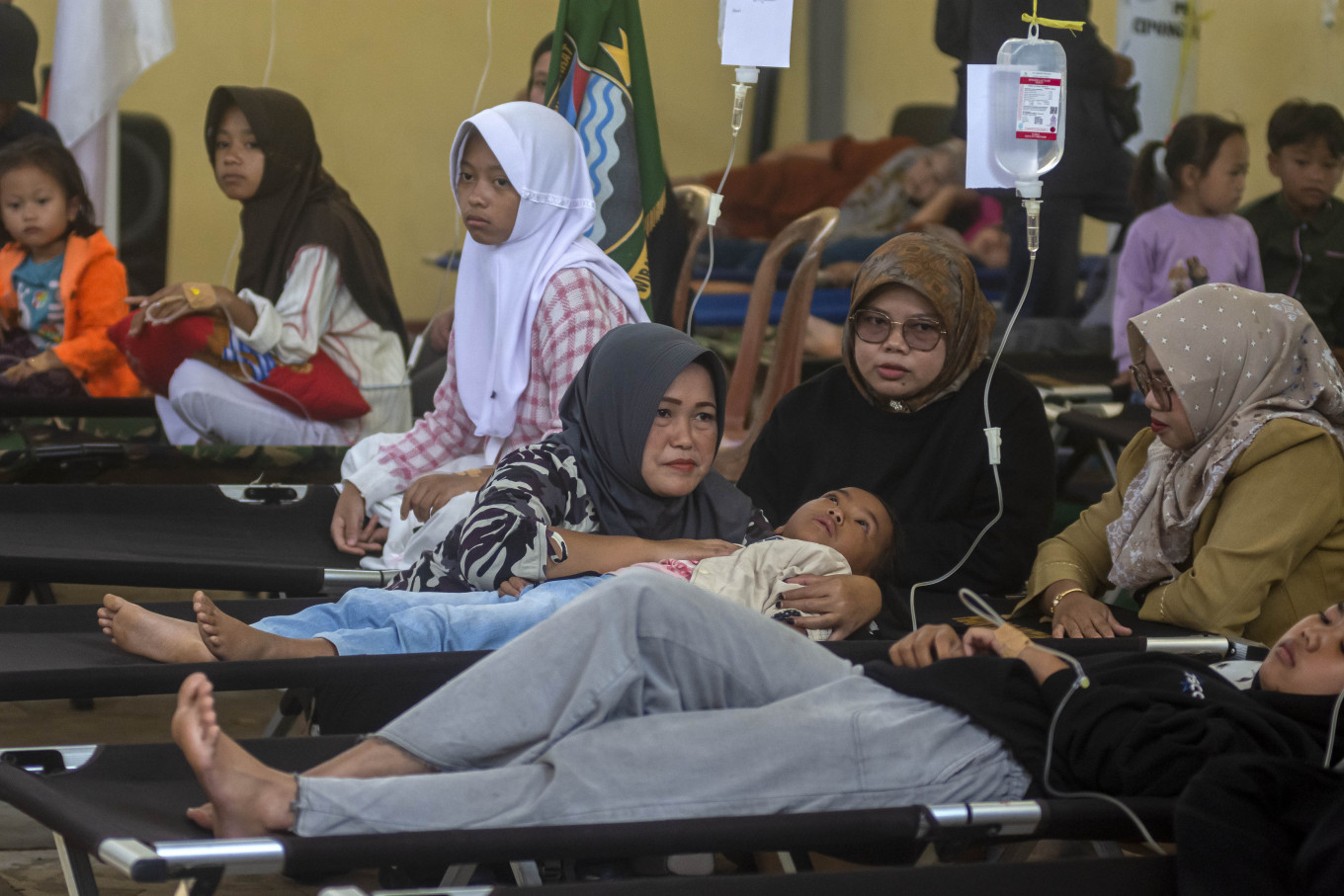Popular Reads
Top Results
Can't find what you're looking for?
View all search resultsPopular Reads
Top Results
Can't find what you're looking for?
View all search resultsChildren’s lives not a gamble
The government has no choice but to immediately pause the program and carry out a full systemic overhaul now that thousands of people have fallen ill due to food poisoning.
Change text size
Gift Premium Articles
to Anyone
W
hen launched in January, the free nutritious meals (MBG) program was celebrated as a bold response to chronic malnutrition, a lifeline for the nation's poorest children and a cornerstone of the "Golden Indonesia Vision 2045."
Nine months later, however, food poisoning cases linked to the initiative have become disturbingly frequent. What began as a public health solution is now a daily source of anxiety for many parents, who hold their breath hoping their children won't become the next victims.
According to Health Ministry data as of Sept. 16, 60 food poisoning incidents have been reported nationwide, initially affecting over 5,200 children. Since that release, more than 1,500 additional children have fallen ill after consuming program-linked food.
At least three regions have declared a state of health emergency as their healthcare systems struggle to cope with the surge. In some areas, students are being treated on fold-out beds in hospital halls and makeshift healthcare facilities.
The government has consistently downplayed the severity of these outbreaks. President Prabowo Subianto, fresh from a week-long overseas trip, said on Saturday that managing such a large program will always involve "obstacles" and "challenges", and urged people not to let the incidents be "politicized" to terminate the initiative.
But there is nothing political about children's lives and health, even if the free meals program was launched to fulfill Prabowo’s campaign promise ahead of the 2024 election. Food poisoning is not a mere “challenge” or “obstacle”; it's a serious public health risk, especially for children whose developing bodies and immune systems are highly vulnerable.
The tragic 2013 incident in India, where 23 children died after consuming government-provided school meals contaminated with agricultural pesticides, serves as a stark reminder of the deadly consequences when food safety is compromised.
Experts also warn that foodborne illnesses can trigger serious long-term sequelae, including autoimmune diseases. According to the Centers for Disease Control and Prevention (CDC), over 200,000 United States citizens develop such complications annually. These may take years to appear and include irritable bowel syndrome, reactive arthritis and Guillain-Barré syndrome, the latter of which can potentially cause near-total paralysis.
On Sunday, Coordinating Food Minister Zulkifli Hasan announced that the government would temporarily close kitchens linked to the poisoning cases pending investigation. He also stated that all kitchens must now obtain the Health Ministry’s Hygiene and Sanitation Compliance Certificate (SLHS), implement food tray sterilization, install CCTVs and use water filters. Local community health centers (puskesmas) will also be involved in regular monitoring.
However, these so-called "solutions" fall dangerously short. Given the alarming number of mass poisoning cases, systemic failures in management are undeniable. Simply shutting down problematic kitchens will not prevent future outbreaks.
Requiring the SLHS is a step in the right direction, especially since Presidential Chief of Staff Muhammad Qodari recently revealed that only 34 out of 8,583 free meal kitchens nationwide (just 0.44 percent) currently hold the certificate.
Yet, the deeper issue is the lack of a functioning monitoring and oversight mechanism. Without robust oversight, there is no way to ensure compliance or hold anyone accountable when children fall ill. Furthermore, relying on puskesmas for inspections is inadequate, as many across the country lack even a single doctor, let alone trained professionals capable of conducting food safety inspections for mass meal programs.
The government has no choice but to immediately pause the program and carry out a full systemic overhaul. This refit must include strict safety standards, robust and independent monitoring systems, and clear accountability measures to ensure such tragedies never happen again.
With thousands of children already falling ill, the stakes could not be higher. Failing to implement immediate, radical reforms means these preventable foodborne illnesses will eventually be fatal, devastating public trust in both the program and the government.











